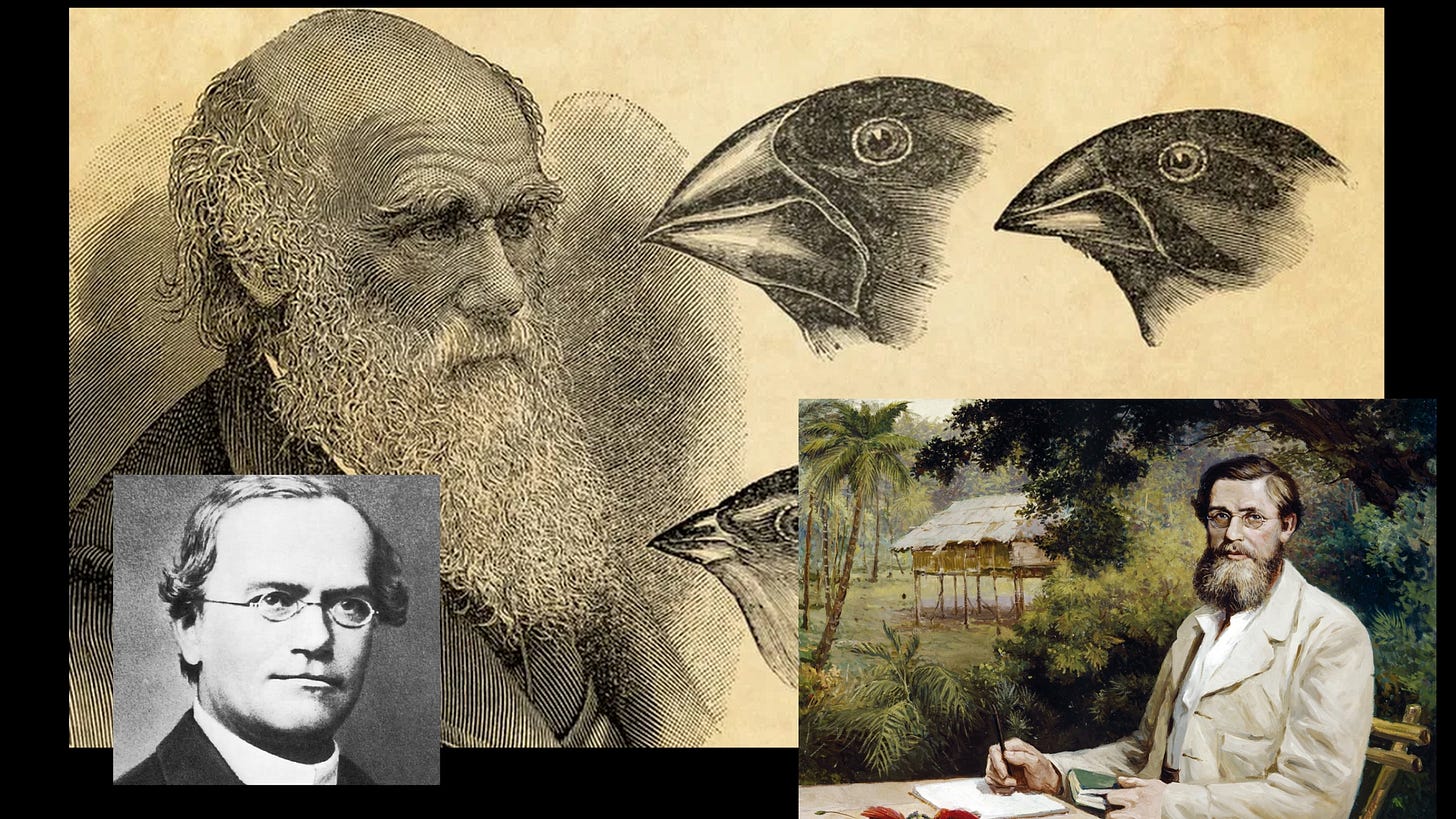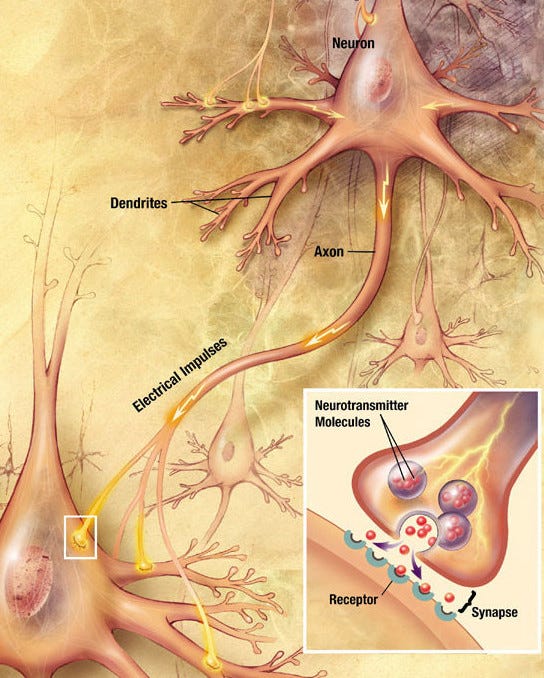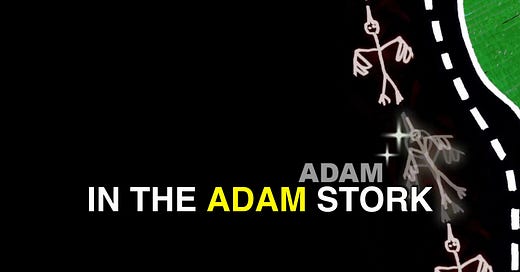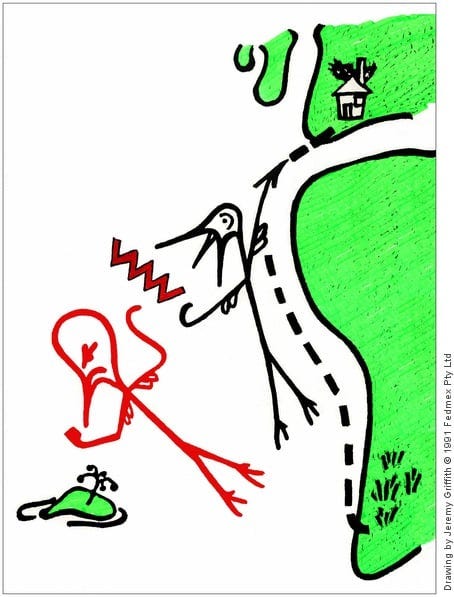The ‘instinct versus intellect’ theory, which Jeremy Griffith explores in depth, is not a new concept. What is new, however, is his biological explanation for WHY we departed from our original state of innocence — an insight he illustrates through his Adam Stork analogy.
In his interview with Craig Conway, which took place in 2020, Griffith points out that explaining this has only been possible in the last 150 years or so, due to the scientific discoveries into the nature of how genes and nerves work.

We’ve come to understand natural selection. Darwin, Wallace, Mendel, and others gave us the understanding of how this fundamental naturally occuring process operates.
In particular, that favorable genetic traits to suit environmental conditions are passed on through subsequent generations to give species ‘orientations’ to the world.
And secondly, we’ve come to understand the nervous system.

The nervous system allows for memory and learning. There is a capacity to remember events. We can sufficiently understand the relationship between cause and effect to become conscious of, or aware of, or intelligent about those relationships.
We have developed the point of being the only fully conscious species. However, what remained unexplained was WHY the conflict between the instinct and the intellect occurs. Griffith addresses this by explaining that while gene based, naturally selected instincts provide species with automatic responses or orientations to the world, only the nerve based, conscious intellect can comprehend cause and effect.
This ability to understand cause and effect allows the intellect to manage and adapt to change. When the fully conscious mind evolved and began making decisions based on understanding rather than instinct, a conflict arose: the fixed, unchanging instincts became intolerant of the mind’s new capacity for experimentation and decision-making. As a result, a fundamental clash developed between the instinctual and intellectual parts of our nature.
This understanding of WHY the conflict between our instincts and intellect occurred that Griffith presents is crucial, because it ends the division between our divided selves. It allows a paradigm shift in our self-perception.
Jeremy Griffith acknowledges that many thinkers and scientists have contributed to our understanding of the conflict between instinct and intellect. In fact, he makes this crucial point:
Yes, that is the essential truth: science is the liberator, the so-called ‘messiah’ or ‘redeemer’ of humankind, as we always hoped it would be!
However, what makes Griffith’s insight truly significant, in my opinion, is his ability to pinpoint why this conflict occurred.

This is an excerpt from my review of Jeremy Griffith’s work, analyzing his interview with Craig Conway. Read the full review: The World Transformation Movement: Hot Air, or A Bastion of Hope for Humanity?, or watch it on YouTube.
👉 Read/watch Jeremy Griffith’s explanation of the human condition
👉 Watch my review on YouTube: Jeremy Griffith and the World Transformation Movement: Key Takeaways from ‘THE Interview’
👉 Read/watch Jeremy Griffith’s Interview on the World Transformation Movement website: THE Interview That Solves The Human Condition And Saves The World!







Share this post